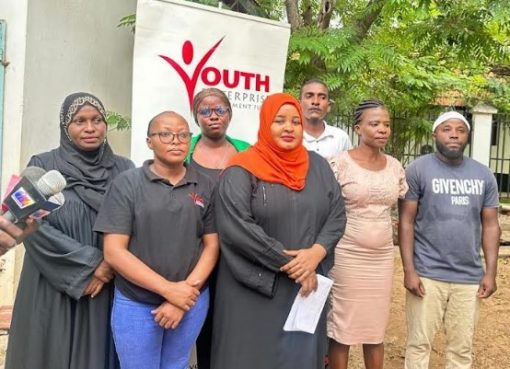More than 24 million adults are currently living with diabetes in Africa, half of whom remain undiagnosed.
World Health Organisation (WHO) Regional Director for Africa, Dr. Matshidiso Rebecca Moeti has said if left untreated, diabetes can lead to complications such as heart disease, stroke, nerve damage, kidney failure, lower-limb amputation, and eye disease that can result in blindness.
In a statement as World Diabetes Day is being marked today, Dr. Moeti noted that without urgent interventions, predictions are that the number of people living with diabetes in the African Region will rise to 54 million by 2045, the highest projected increase globally.
This year’s theme, “Breaking Barriers, Bridging Gaps”, underlines World Health Organization’s (WHO) commitment to reducing risk, and ensuring that everyone diagnosed with diabetes has access to equitable, comprehensive, affordable and quality treatment and care.
Also compounding the challenge is that Africa has the lowest investment rate in diabetes care worldwide, at only 1 percent of the region’s health expenditure and therefore this poses a significant dual health and economic burden, including catastrophic spending by individuals to control their disease,” Dr. Moeti said.
She noted that managing diabetes requires a sustained effort to balance physical health activity, healthy diet, mental well-being, and WHO in the African Region is committed to holistic solutions, including proper nutrition, access to the requisite essential medicines and mental health support.
Equally, she added that crucial are comprehensive prevention strategies to address risk factors including obesity, poor diet and physical activity, combined with community engagement to ensure good support systems and reduced stigma.
“On this World Diabetes Day, I urge individuals, communities, governments, health workers, policymakers and civil society organizations to join hands and act now. For individuals, prioritize a healthy lifestyle, and if you’re already living with diabetes, have regular medical check-ups,” Dr. Moeti said.
Communities, she noted, can play their role by creating supportive environments that promote healthy living, reduce stigma, and provide access to affordable diabetes care and education.
“For governments, we commit our full support to your efforts to implement policies that enhance access to essential medicines, strengthen primary health care systems, and foreground investment in diabetes prevention and care,” she said.
Dr. Moeti however emphasized on the need to strengthen diabetes control in the African region by addressing key gaps, including myths and misconceptions about diabetes, fragile primary health care systems and insufficient capacity and training of health care workers.
“Together, let us all commit to breaking down the barriers and addressing the gaps, by raising awareness, spreading knowledge, and creating lasting change for everyone in Africa affected by diabetes,” Dr. Moeti said.
According to WHO, against a background of rising diabetes prevalence in Africa, complicated by multiple drivers including urbanization, unhealthy diets and physical inactivity, the theme of World Diabetes Day 2024 appropriately emphasizes the imperative of a collaborative approach to this “silent killer”.
In Kenya, the prevalence of diabetes in 2024 is 3.87 percent of the population, with a higher prevalence in men than in women.
By Wangari Ndirangu




